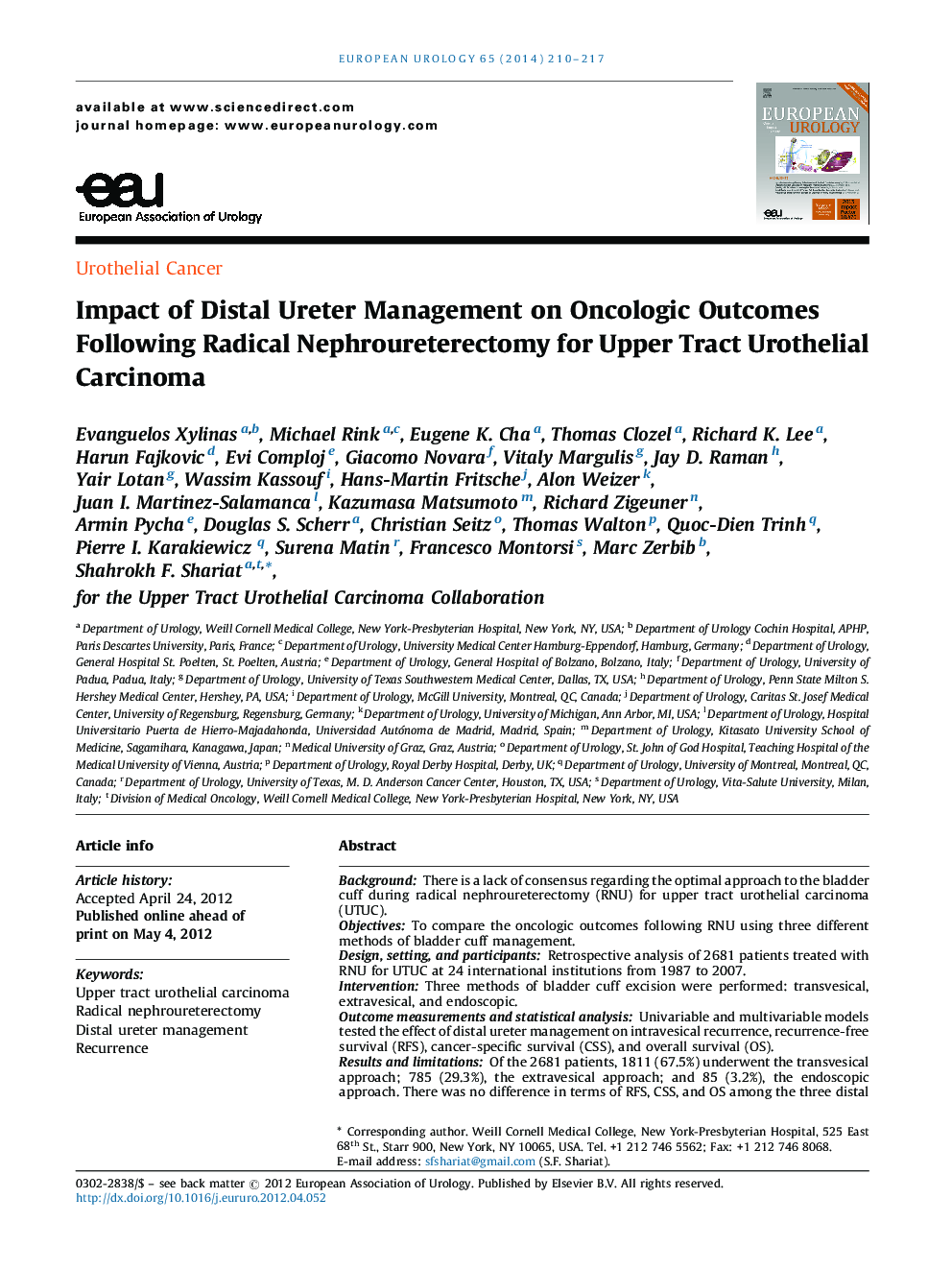| کد مقاله | کد نشریه | سال انتشار | مقاله انگلیسی | نسخه تمام متن |
|---|---|---|---|---|
| 3925046 | 1253121 | 2014 | 8 صفحه PDF | دانلود رایگان |
BackgroundThere is a lack of consensus regarding the optimal approach to the bladder cuff during radical nephroureterectomy (RNU) for upper tract urothelial carcinoma (UTUC).ObjectivesTo compare the oncologic outcomes following RNU using three different methods of bladder cuff management.Design, setting, and participantsRetrospective analysis of 2681 patients treated with RNU for UTUC at 24 international institutions from 1987 to 2007.InterventionThree methods of bladder cuff excision were performed: transvesical, extravesical, and endoscopic.Outcome measurements and statistical analysisUnivariable and multivariable models tested the effect of distal ureter management on intravesical recurrence, recurrence-free survival (RFS), cancer-specific survival (CSS), and overall survival (OS).Results and limitationsOf the 2681 patients, 1811 (67.5%) underwent the transvesical approach; 785 (29.3%), the extravesical approach; and 85 (3.2%), the endoscopic approach. There was no difference in terms of RFS, CSS, and OS among the three distal ureteral management approaches. Patients who underwent the endoscopic approach were at significantly higher risk of intravesical recurrence compared with those who underwent the transvesical (p = 0.02) or extravesical approaches (p = 0.02); the latter two groups did not differ from each other (p = 0.40). Actuarial intravesical RFS estimates at 2 and 5 yr after RNU were 69% and 58%, 69% and 51%, and 61% and 42% for the transvesical, extravesical, and endoscopic approaches, respectively. In multivariate analyses, distal ureteral management (p = 0.01), surgical technique (open vs laparoscopic; p = 0.02), previous bladder cancer (p < 0.001), higher tumor stage (trend; p = 0.01), concomitant carcinoma in situ (CIS) (p < 0.001), and lymph node involvement (trend; p < 0.001) were all associated with intravesical recurrence. Excluding patients with history of previous bladder cancer, all variables remained independent predictors of intravesical recurrence.ConclusionsThe endoscopic approach was associated with higher intravesical recurrence rates. Interestingly, concomitant CIS in the upper tract is a strong predictor of intravesical recurrence after RNU. The association of laparoscopic RNU with intravesical recurrence needs to be further investigated.
Journal: European Urology - Volume 65, Issue 1, January 2014, Pages 210–217
